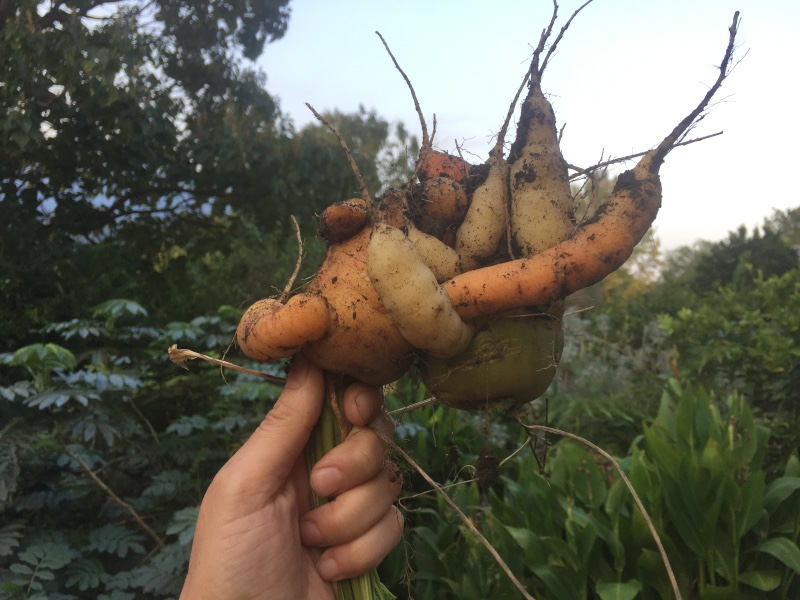Issue 9: RESISTANCE
Photo credit: Kim Munro - no title, 2018
Call for Proposals
- Proposals due 1 May 2022
Guest Editors:
- Melody Ellis (RMIT University)
- Kim Munro (University of South Australia)
ABOUT
Foucault writes, “Where there is power, there is resistance” (1990, 95). To resist—from its most modest quotidian expression to large-scale community action—implies an action against something, be it injustice, the status quo, and/or entrenched power.
To resist is to stand one’s ground and refuse to act as one is being told one must. Or to be unruly, to break the rules, to experiment and to push the boundaries. We might characterise resistance as that revolutionary impulse that Audre Lorde writes about, “not as a one-time event” but rather as “always vigilant for the smallest opportunity to make a genuine change in established, outgrown responses” (1984, 140-1). As Donna Haraway has argued, “Revolt needs other forms of action and other stories of solace, inspiration and effectiveness” (2016, 49).
To consider the term resistance is to engage with broader questions of power, disobedience, rebellion, refusal, and objection, to name a few. It is to be reminded of long (sometimes forgotten, sometimes ignored) histories of activism for civil and environmental rights across the world. To consider resistance on unceded Boon wurrung and Wurundjeri country, in our case, is to remember the ever-present legacies of colonisation and exploitation.
As creative practitioners, there are various ways we might seek to resist and indeed come up against resistance in our work, many of which counter easy definitions. For example, Stephen Muecke has named deflection, interruption, creation, destruction and disappearance as just some ways of enacting resistance (2020).
How might we understand the various and intersecting critical concerns of resistance? What is resistance as a creative act? Or, as Rosi Braidotti asks, “how can we work towards socially sustainable horizons of hope, through creative resistance?” (2019, 156). This issue of Unlikely responds to the relationship between creative practices and/as resistance.
THEMES
Themes might include, but are not limited to:
- Co-creative and collaborative practices as resistance
- Futurism (Afro, Indigenous etc.) as resistance to the dominance of doom narratives
- Practices of care in creative contexts
- Reframing dominant epistemologies through creative interventions
- Play and humour as resistance
- Creative acts of refusal
- Movement and dance
- Queer methodologies
- Other-than-human perspectives
- Quotidian forms of resistance
FORMAT
The peer-reviewed edition will coincide with a series of public programs and events held in July 2023 across multiple sites in Adelaide. We also invite events which are organised interstate and internationally that form part of the broader network of activities around themes of resistance.
Contributions may include, but are not limited to, the following forms:
- An event or action organised in your local area (with documentation and research statement 1000 words)
- Scholarly article (4000-6000 words)
- Creative written piece which may include video, audio, images, text (3000-4000 words)
- Audio, video and multimedia pieces (with research statement 1000 words)
- Interview or conversation (2000-3000 words)
- Performance (plus documentation and research statement 1000 words)
Creative researchers in art, performance, film, writing, audio and interdisciplinary practices are encourage to apply
SUBMISSION GUIDELINES and TIMELINE
- Submit proposal: 1 May 2022
Abstract which specifies the theme and format (300 words) plus short bio (100 words).
- Notification of Acceptance: 1 June 2022
- Submission of draft: 1 November 2022
- Peer-review complete: 1 February 2023
- Final Submission: 15 March, 2023
- Expected Publication: January 2024
CONTACT
- Melody Ellis: melody.ellis@rmit.edu.au
- Kim Munro: kim.munro@unisa.edu.au
References
Braidotti, Rosi. 2019. Posthuman Knowledge, Cambridge, UK: Polity Press.
Foucault, Michel. 1978. The history of sexuality. Volume I, An introduction. New York: Vintage Books
Haraway, Donna. 2016. Staying with the Trouble: Making Kin in the Chthulucene. Durham: Duke University Press.
Lorde, Audre. 1984. Sister Outsider. New York: Crossing Press.
Muecke, Stephen. 2020. “Resistance”, Overland, 24 Summer.



